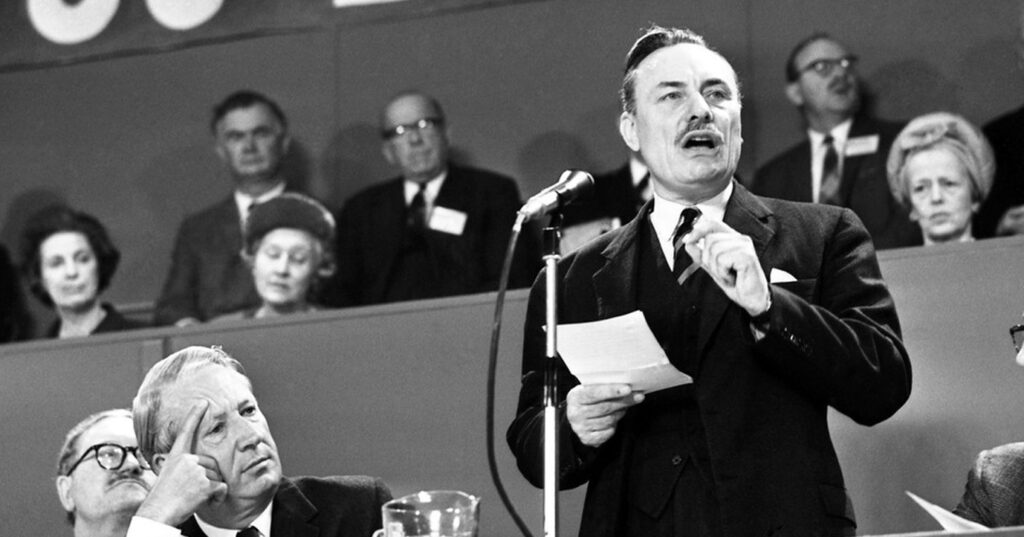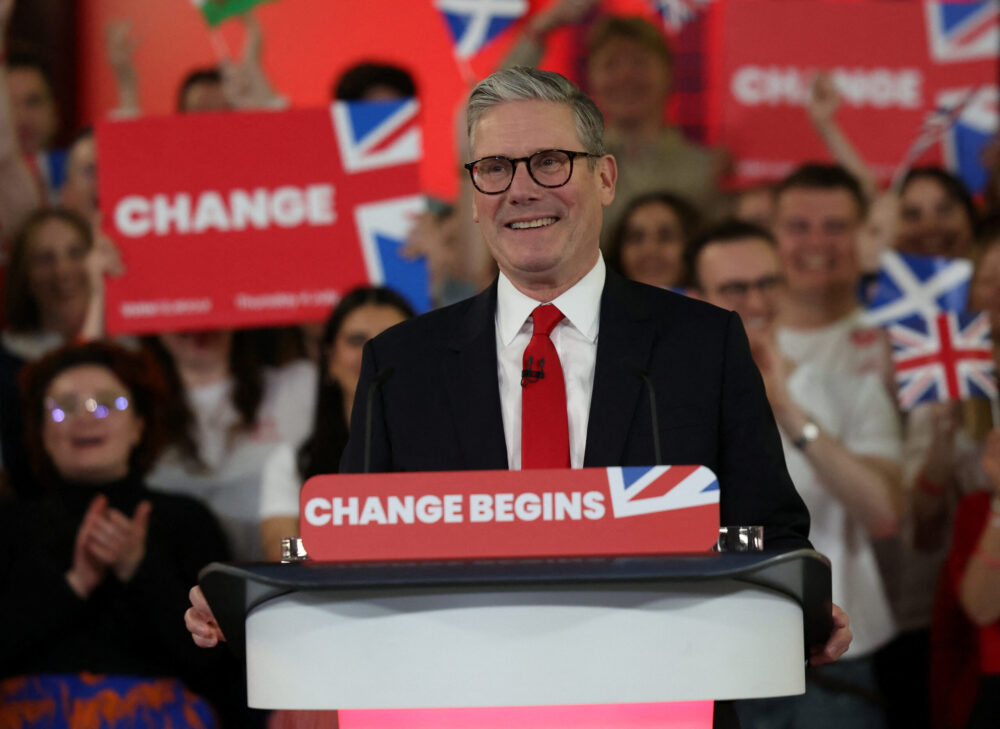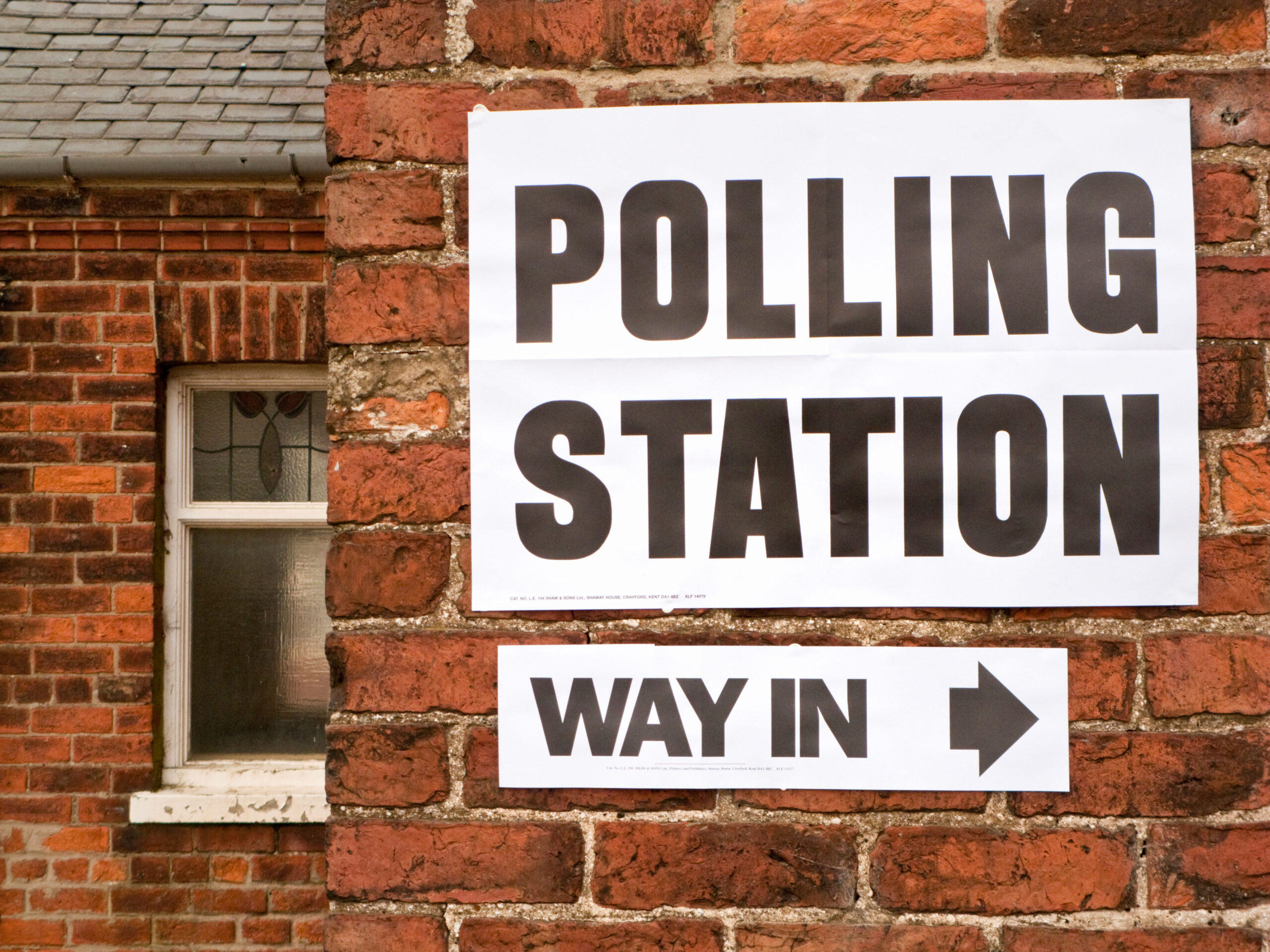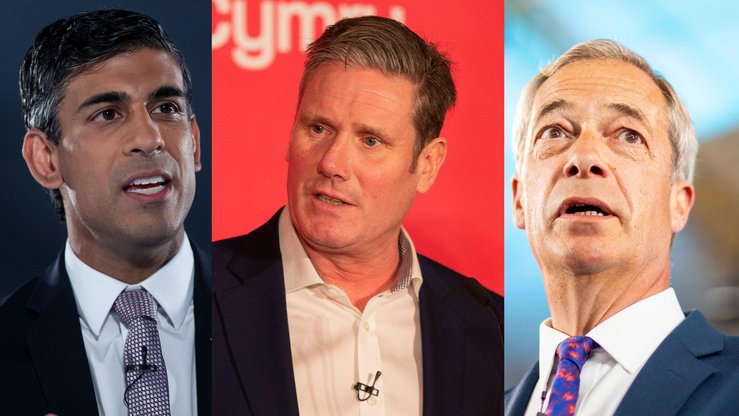
Forty-five years ago this weekend, Enoch Powell warned of what he saw as the consequences of immigration. The anniversary of the “rivers of blood” speech is a good moment to ask how far Britain is regarded as a multicultural society. It is also an opportunity to look further at the attitudes of minority voters towards politics in general and the Conservative Party in particular.
In a poll of 1,035 minority voters completed earlier this week I found that nearly nine in ten think Britain has become a multicultural country, and a similar proportion saying this is a good thing. In a nationally representative poll conducted at the same time, 90% also said Britain was multicultural, but only 70% were in favour of this development. There was considerable variation between different kinds of people but in only one group – UKIP voters – did a majority (57%) say they were opposed to multiculturalism.
Three quarters of ethnic minority voters said that having people from a wide variety of backgrounds had strengthened British culture, though only just over half of the general population agreed. Just over half (54%) of the national sample thought immigration had been a bad thing for the country on the whole. 80% of black voters disagreed, but only 64% of those from an Asian background; only 51% of Sikhs thought immigration had generally been good for Britain.
Strikingly, most minority voters thought “the different ethnic groups that make up this country get on well”, while a majority of the general population thought “there is an increasing amount of tension” between them. Again, UKIP voters were the most likely to think this; indeed black and Asian people were twice as likely as UKIP voters to think relations between different ethnic groups were good.
Nearly nine in ten ethnic minority voters thought Labour supported Britain being a multicultural country, with little variation between groups. However, while only 38% of black Caribbean participants thought the Conservatives favoured multiculturalism (though 44% thought this of David Cameron), nearly two thirds of Hindus thought so (and three quarters thought it true of the PM).
Only just over half (54%) of voters as a whole thought the Conservative Party favoured multiculturalism. Tellingly, UKIP voters were much more likely than average to think this was true of the Tories (73%).
Most participants in the ethnic minority poll could not name spontaneously a single politician from their own or another minority background. Keith Vaz was mentioned most commonly (by 10% of participants), followed by Sayeeda Warsi, Diane Abbott and, perhaps oddly, Ed Miliband. George Galloway, of all people, was fifth.
The memory of Enoch Powell remained strongest among black Caribbean participants, 64% of whom said they had “heard of him and know who he is or what he said”. Meanwhile, more than half of those from an Asian background said they had never heard of him; only 28% knew who he was. Among the wider population, nearly three quarters had heard of Powell and 58% knew who he was or what he said. 90% of UKIP voters fall into the latter category.
Nearly three quarters of Hindus, 70% of Sikhs and 68% of Muslims agreed that “if you work hard, it is possible to be very successful in Britain no matter what your background”. Only 59% of the general population thought this. Those from a black Caribbean background were the most likely to disagree: half thought it more true that “in Britain today, people from some backgrounds will never have a real chance to be successful no matter how hard they work”. This group was also the least likely to think their children’s lives would be better than theirs – only 51% thought this, compared to 67% of those from a black African background and six in ten Hindus, Muslims and Sikhs.
The economy and jobs were overwhelmingly the most important issue for ethnic minority participants. More than half mentioned the issue spontaneously, with immigration second, raised by 6%. Only 22% of black voters, and 38% of those from an Asian background, said they most trusted David Cameron and George Osborne to manage the economy (though 51% of Hindus did so – more than among the population as a whole).
More generally, and not surprisingly, Labour was by far the best regarded party among ethnic minorities. Again, though, there was considerable variation in attitudes to the Conservatives. While the party did uniformly badly among black and Muslim voters, Hindus and Sikhs often had a rather more positive view of the Tories than did voters as a whole.
Nevertheless, it remains a fact that only 16% of ethnic minority voters supported the Conservatives at the last election. As I argued in Degrees of Separation, we must do better than this – both because we should be a party for the whole country, and because we will find it increasingly difficult to win a majority without them. There is no doubt that in 2010 this situation cost us seats.
The Conservatives are starting to take this issue seriously, with the energetic Alok Sharma in charge as Vice Chairman for BME Communities. This is welcome, but in my experience the party has often proved unable or unwilling to sustain long term projects. The urgent always ends up crowding out the important. It will take more than one parliament to get this right, but we must.


